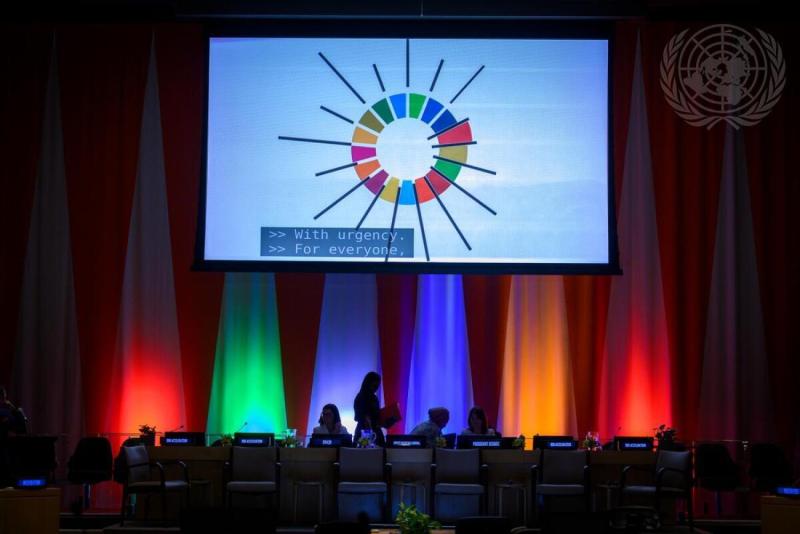

“We won’t solve our problems with the same thinking that created them,” warned UN Deputy Secretary-General Amina J. Mohammed at a special event on the sidelines of the High-Level Political Forum 2024, urging Member States and partners alike to embrace collaboration and invest in key green and digital transition areas that can catapult the world to achieve the SDGs by 2030.
The Event titled “Keeping the SDG Promise: Pathways for Acceleration”, hosted jointly by the Joint SDG Fund and the Executive Office of the Secretary-General, highlighted voices and initiatives from Government, UN entities, civil society, research institutions, youth and marginalized groups driving SDG acceleration.
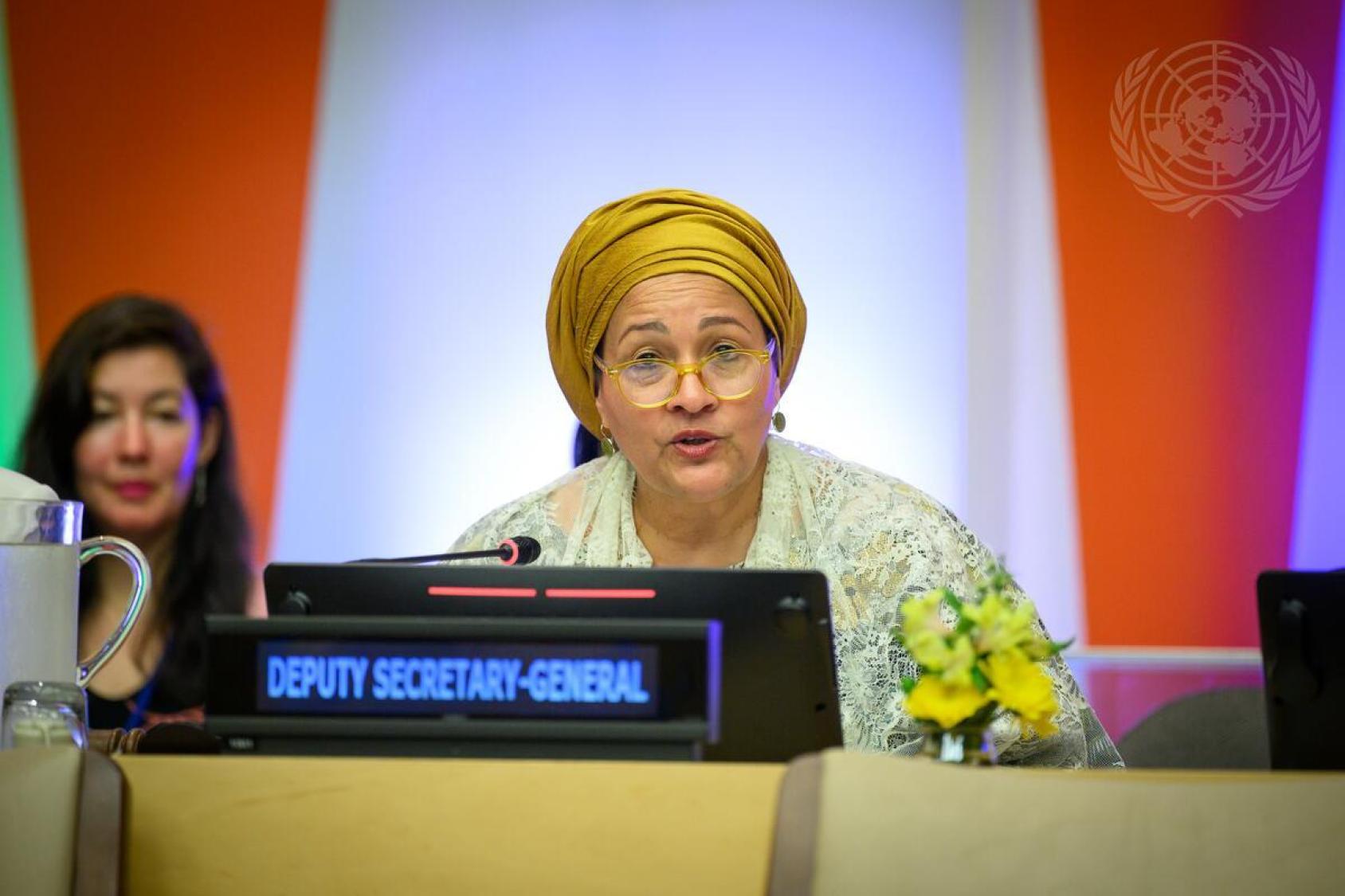
Targeted and transformative investments are required in several key entry points holding the potential for unlocking multiplier benefits across the SDGs. These include transforming food systems; advancing the renewable energy revolution; protecting our natural world and furthering climate action; and leveraging digital technology. In addition, decent jobs, access to social protection and inclusive quality education and skills are also foundational to eradicate poverty and leave no-one behind.
These areas can have ripple effects across all SDGs and can bring the best outcomes for current and future generations.
“The shift in thinking needed for SDG acceleration hasn’t yet happened,” said the UN Deputy Secretary-General. “We need a different approach- one that breaks down the artificial boundaries between the 17 Goals and between climate action and SDG action.”
Meeting ambitions with investments
Strategic, systemic, scaled-up action for these transformative investments will require integrated policy shifts, innovative investments with financing from both public and private sectors and effective institutions to enable cross-sectoral impact.
The starting point for this lies in the Secretary-General’s call for an SDG Stimulus. Spain’s State Secretary for International Cooperation H.E Ms. Eva Granados Galiano reaffirmed Spain’s commitment for the SDG Stimulus, calling for a reform of the international financial architecture, in support of long-term sustainable development. From incentivizing multilateral development banks to multiply loans for sustainable development and public goods, to increasing bilateral financing and tax cooperation and building strong protection systems for future crises, Ms. Granados Galiano called for investing in these areas for SDG acceleration, highlighting Spain’s own work in strengthening the robustness of its food systems.
Highlighting Brazil’s Presidency of the G20 as an opportunity, H.E Mr. Márcio Macedo, Minister of the General Secretariat of Presidency of Brazil, emphasized the need for more just markets and effective and fair tax systems as a pre-requisite for achieving the SDGs.
The Joint SDG Fund, through integrated policymaking and innovative and catalytic financing is helping overcome common bottlenecks at the country level and galvanizing UN action for the SDGs. As an incubator for innovative solutions, the Fund is building up the capacity of public sector to deliver, but also attracting private sector partners by derisking large programmes. Blended finance facilities in Uruguay and North Macedonia, and new financial instruments like SDG Bonds in Indonesia and Uzbekistan, are marking the shift away from “business-as-usual”.
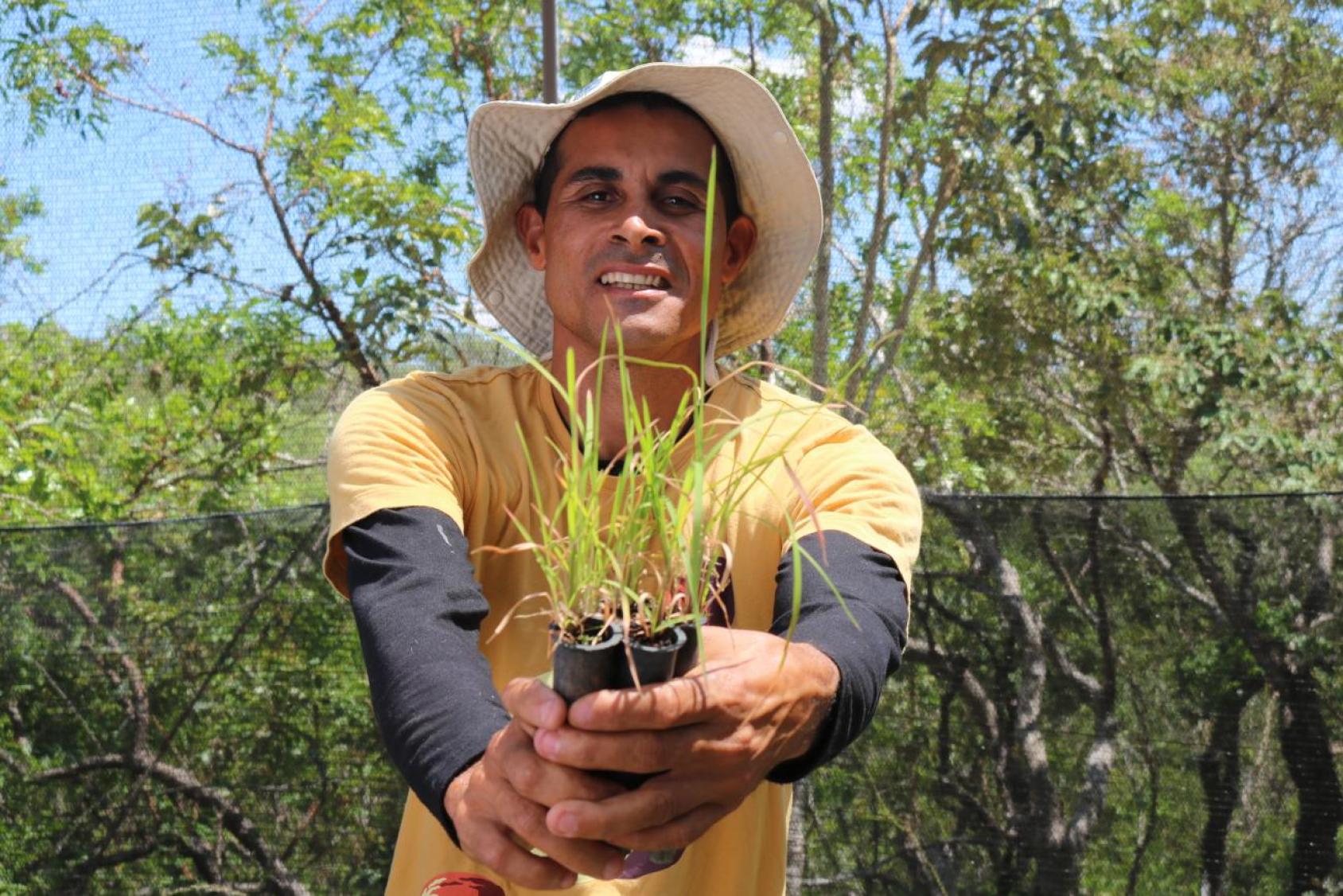
Tools like cash transfers, shared by countries like Sudan and Brazil, showcase how the connections between new green jobs and renewable energy, in turn, help agriculture and small enterprises flourish and curb hunger and malnutrition at the local level. This kind of systemic approach maximizes synergies and minimizes the trade-offs between Goals.
Capitalizing on Climate Action as a way to SDG Acceleration
With the next generation of Nationally Determined Contributions - nations’ blueprints for the Paris Agreement - there is a golden opportunity to ensure climate action further acts as a driver for economic growth, fiscal reforms and social transformation.
UNDP Assistant Secretary General and Regional Director for Asia and the Pacific, Kanni Wignaraja, zeroed in on the clean energy transition, combined with digital connectivity, as having the momentum to scale up and tackle systemic barriers across multiple sectors.
This approach of using climate action as the lever for larger change echoed the experience shared by H.E Mr. Rexon Annex Ramfafia, Minister of National Development Planning and Coordination in the Solomon Islands, a small island developing state where funding and programming for climate action goes hand-in-hand with investments in resilient infrastructure development, energy grids and digital communication systems.
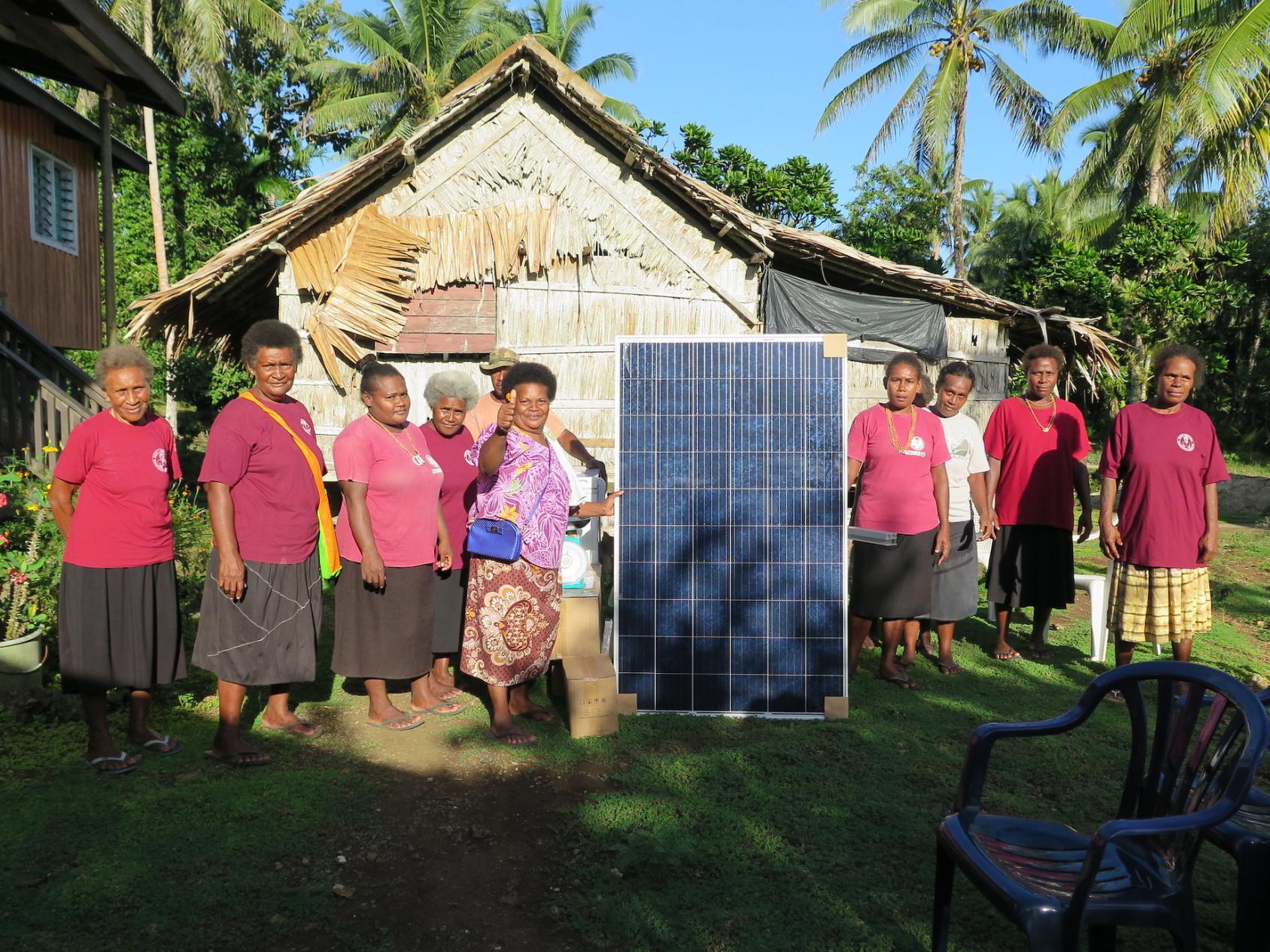
Making the UN Development System Fit-for-Purpose
UN Resident Coordinators, leading UN country teams, are increasingly spearheading this new approach at country level, bringing varied groups of investors and actors around the table to deliver on the transformations required according to specific country contexts.
Assistant Secretary-General for UN Development Coordination, Mr. Oscar Fernandez-Taranco, pointed out that delivering on any one of the transition areas , let alone all, will require all UN entities to come together in a cohesive and coordinated way, playing to their unique strengths and mandates.
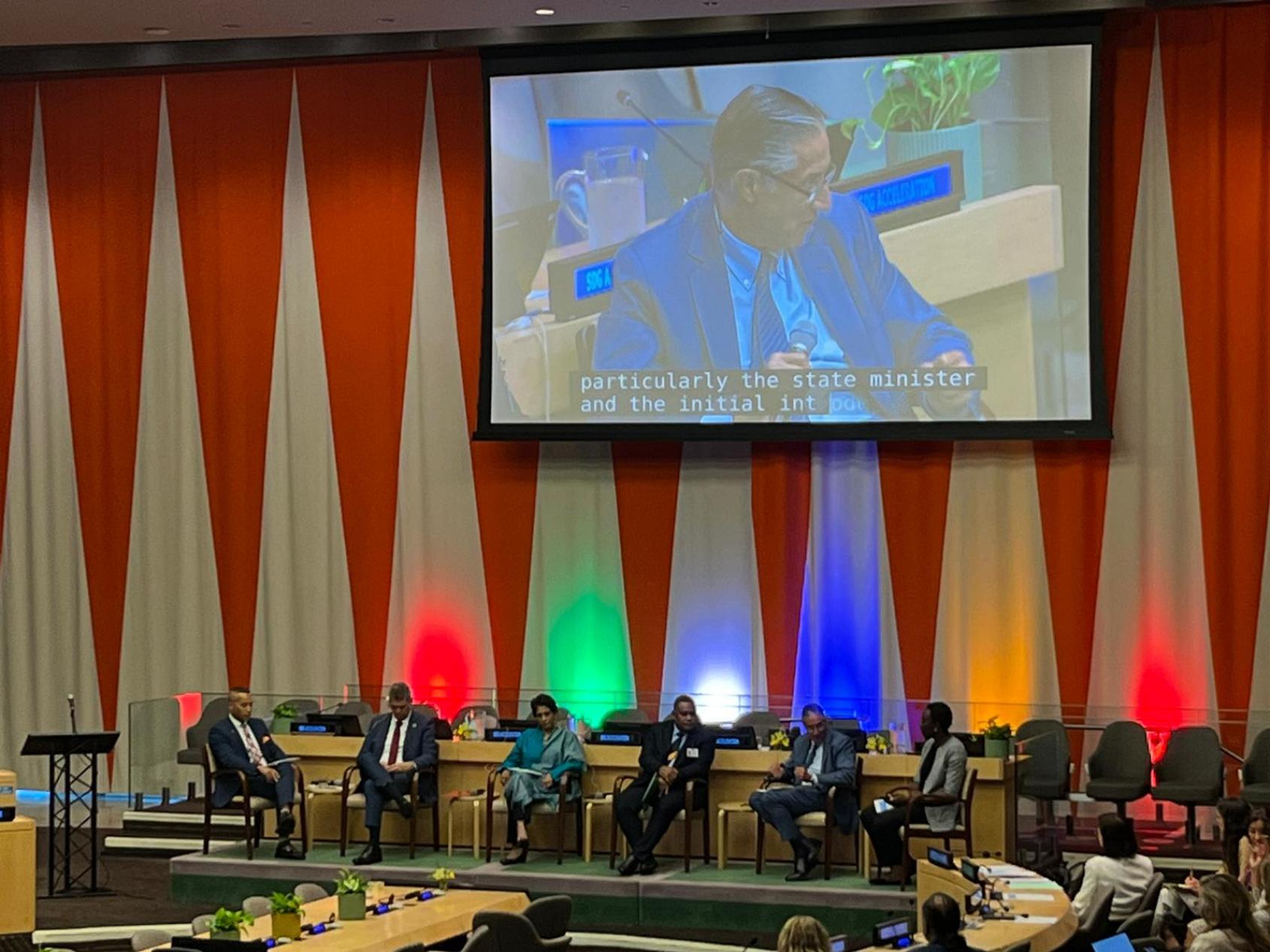
Highlighting the value of pooled funding mechanisms as an incentive for joint work, he said, “We need mechanisms that incentivize joint action… We have instruments we know that work, like the Joint SDG Fund, that take the risk of doing innovative work. The Fund has been instrumental in breaking down silos, reducing competition within the UN and delivering quality, integrated, strategic programming at the country level.”
Fulfilling the path set out by the Funding Compact to supercharge the UN’s sustainable development efforts with flexible, unearmarked and pooled resources, will be vital in realizing these efforts.
Affirming Inclusion
Finally, the cornerstone of the 2030 Agenda still hinges on meaningful inclusion and leaving no one behind. Civil society members representing youth groups, persons with disabilities, and women and girls provided the much-needed perspective of ensuring that the investments in these transitions for the SDGs are just and inclusive. Strengthening disaggregated data collection and inclusive policies across sectors, informed by the participation of marginalized groups, can ensure that investments in these transitions reap benefits for all.
Originally published by UN DCO.